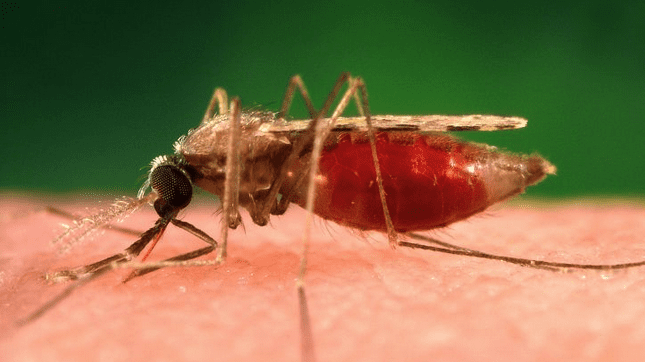Just a little over a week ago, we posted that the CDC recommended getting a polio booster when visiting these 31 countries, due to an increased risk of catching the disease. Most were third world countries that have never completely eradicated the disease. But there were a couple on the list that were first world countries where, unfortunately, the spread of the potentially disabling or fatal virus was likely because some parents refuse to get their children vaccinated.
It’s a few days, so what surprise disease do we have now? Malaria. In FLORIDA and TEXAS, of all places!
If you’ve been reading Your Mileage May Vary for a while, you may know that I was an occupational therapist for many years. I don’t actively practice anymore; insurance companies sucked the joy out of it for me, and it’s more fun being a travel blogger ;-). However I keep myself on the Florida Department of Heath’s (FDOH) mailing list, just to keep my ear to the ground.
On Monday they emailed out a statewide mosquito-borne illness advisory, following four confirmed local cases of malaria in Sarasota County. As it turns out, the Texas Department of State Health Services (DSHS) was also notified of a resident, in Cameron County that was recently diagnosed with malaria.
Sarasota County is on the southwest coast of the state, roughly an hour south of Tampa. Cameron County is also on the Gulf Coast, on the southern tip of the state, about 2.75 hours south of Corpus Christi.
According to the CDC, malaria is a serious and potentially fatal disease transmitted through the bite of an infective female anopheline mosquito. The FDOH and DSHS both specified that the people diagnosed with the disease have been treated and are recovering or are recovered.
The FDOH recommended to residents and visitors throughout the state should take precautions by applying bug spray, avoiding areas with high mosquito populations, and wearing long pants and shirts when possible – especially during sunrise and sunset when mosquitos are most active. They also make the following recommendations:
COVER skin with clothing or appropriate repellent.
- Clothing – Wear shoes, socks, and long pants and long-sleeves. This type of protection may be necessary for people who must work in areas where mosquitoes are present.
- Repellent – Apply mosquito repellent appropriately.
- Always use repellents according to the label. Repellents with DEET, picaridin, oil of lemon eucalyptus, para-menthane-diol, 2-undecanone, and IR3535 are effective.
- Use mosquito netting to protect children younger than 2 months old.
Tips on Repellent Use
- Always read label directions carefully for the approved usage before you apply a repellent.
- Apply insect repellent to exposed skin or clothing, but not under clothing.
- Treat clothing and gear with products containing 0.5% permethrin. Do not apply permethrin directly to skin.
- Some repellents are not suitable for children. Ensure repellent is safe for children and age appropriate:
- Mosquito repellents containing lemon eucalyptus oil or para-menthane-diol should not be used on children under the age of three years.
- DEET is not recommended on children younger than two months old.
- Avoid applying repellents to the hands of children.
- Parents should apply repellent to their hands first and then transfer it to the child’s skin and clothing.
Want to know how rare malaria is in the U.S.? These are the first known cases of locally acquired malaria in the country since 2003.
Stay safe out there, travel friends!
Want to comment on this post? Great! Read this first to help ensure it gets approved.
Want to sponsor a post, write something for Your Mileage May Vary, or put ads on our site? Click here for more info.
Like this post? Please share it! We have plenty more just like it and would love it if you decided to hang around and sign up to get emailed notifications of when we post.
Whether you’ve read our articles before or this is the first time you’re stopping by, we’re really glad you’re here and hope you come back to visit again!
This post first appeared on Your Mileage May Vary
Join our mailing list to receive the latest news and updates from our team.

